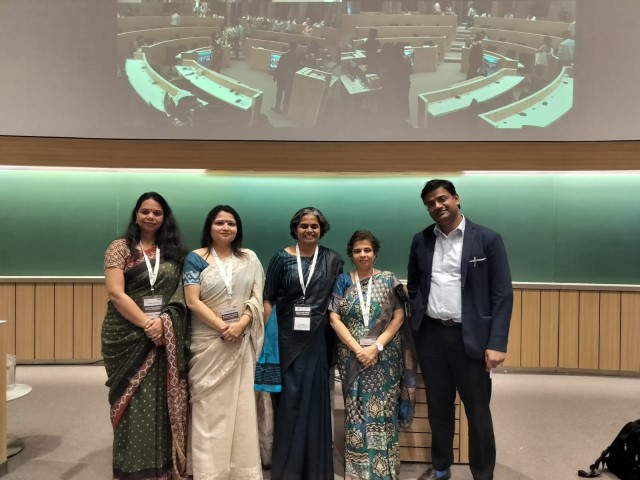PUNE: Key public health practitioners and members of the academic fraternity discussed the evolving landscape of nutrition within the ambit of public health and health economics in India at Pune’s FLAME University on Thursday as part of a panel discussion titled ‘Nutrition in India: Accelerating Progress, Investing in Nutrition’. The panel discussion, co-designed by Nutrition International, was part of the Indian Health Economics and Policy Association (IHEPA)’s 11th Annual Conference on 18-19 January 2024.
The panel discussion was moderated by Ms. Mini Varghese, Country Director-India, Nutrition International, and co-moderated by Dr. Kapil Yadav, Professor, Centre for Community Medicine, All India Institute of Medical Sciences (AIIMS), New Delhi. The panelists comprised Dr. Suparna Ghosh-Jerath, Program Head, Nutrition, The George Institute for Global Health, India, Dr. Anjali Ganpule, Senior Research Associate Centre for Chronic Disease Control (CCDC), New Delhi, and Dr. Surabhi Mittal, Economist-Asia from Nutrition International.
The World Bank estimates that all forms of malnutrition cost the global economy $3.5 trillion per year, whereas, every $1 invested in nutrition can generate $16 in returns. Understanding the economic implications is crucial for making informed decisions and advocating for resource allocation in public health.
Economics can be useful in research and applied analysis to inform advocacy, policy decisions, and investments. Practical tools and resources, which are simple to use, have proven to be successful in influencing policy and informing investments. They help increase access to data for countries and motivate them for in-depth research. The panel discussion saw an in-depth presentation on several evidence-based modeling tools that estimate the health, human capital, and economic costs of current levels of malnutrition and inform and influence nutrition policy decisions and resource allocations in the area.
“A healthy, well-nourished population is the foundational prerequisite for growth and economic development. Investments in nutrition create a virtuous circle linking nutrition to improved health, increased education and lifetime earnings, and women’s empowerment. We know that every $1 invested in nutrition can generate $16 in returns. Yet, funding for nutrition has continually remained low. Increasing investments in nutrition and implementing proven intervention at scale addressing equity issues is therefore crucial. Investing in nutrition is not only the right thing to do, it’s also the smart thing to do to ensure a sustainable future. Prioritizing nutrition, especially for the vulnerable population can connect them to a world of opportunity,” said Mini Varghese, Country Director, Nutrition International.
Dr. Ghosh Jerath said, “Improved nutrition and improved economic growth have a bi-directional relationship. Moreover, the life-cycle approach to nutrition is very critical. Nutrition interventions, therefore, need to be intergenerational and address both ends of the spectrum, that is, undernutrition and overnutrition.”
Apart from nutrition economics, the panel also deliberated on the current status of nutrition in South Asia and India, the policy discourse around nutritious food choices, and the role and the role of nutrition communication in driving positive dietary choices. Comprehensive and coordinated efforts among various departments such as the government, development partners, academia, and civil society amongst others, are key to enabling sustainable nutrition outcomes in the long run.


